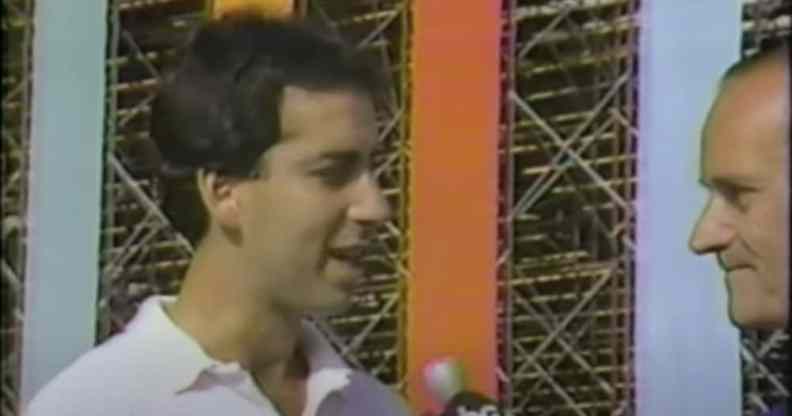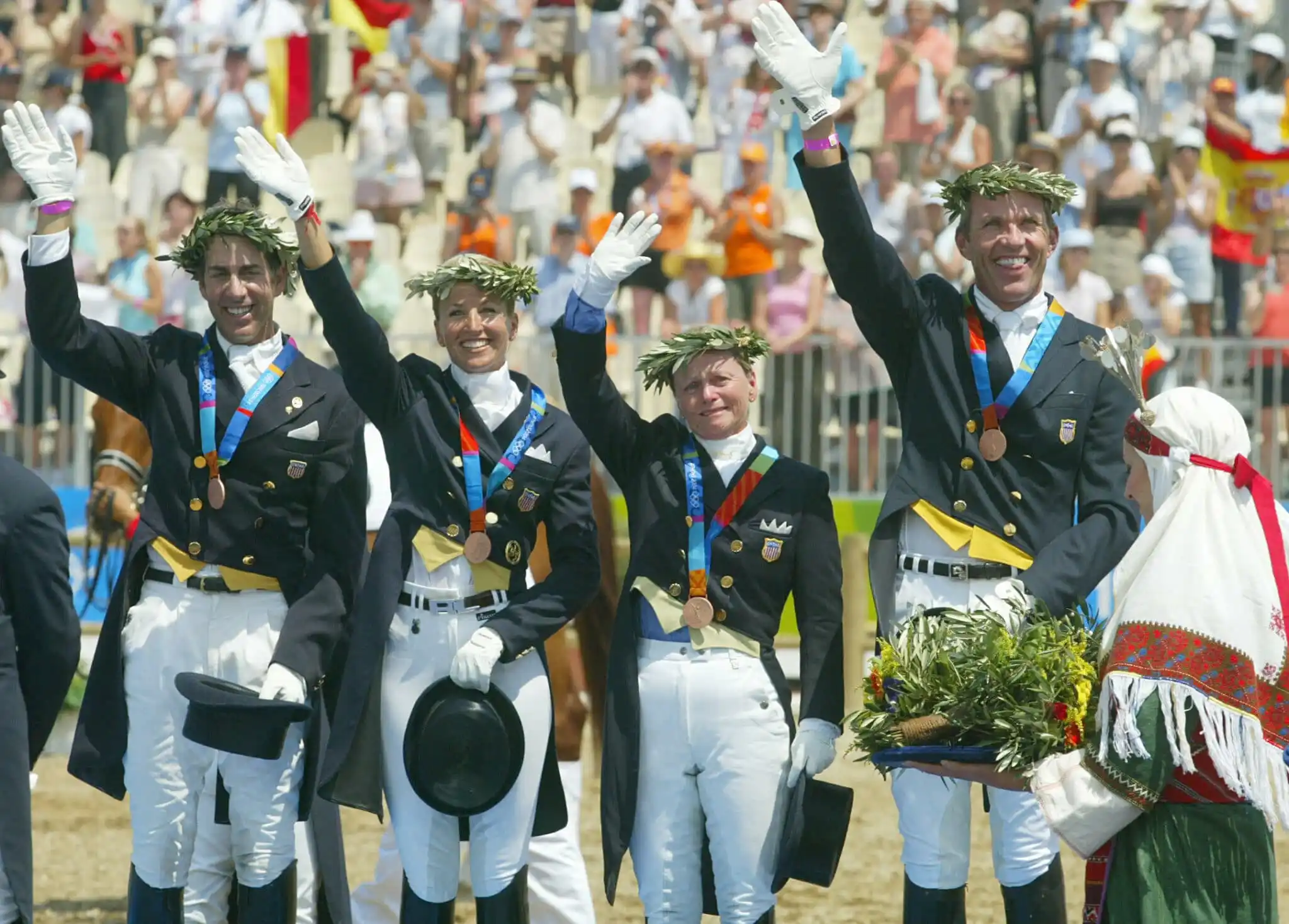The fearless gay athlete who came out and made Olympics history at the height of his career

Robert Dover being interviewed ahead of the 1984 Olympic Games (YouTube/westnyacktwins)
Robert Dover being interviewed ahead of the 1984 Olympic Games (YouTube/westnyacktwins)
This year we’ll see a historic number of out LGBT+ athletes competing on the world stage at the Tokyo Olympics, but there was a time when there were none at all.
At least 163 out athletes will be representing their countries at Tokyo 2020, more than have participated at all other Summer Games combined.
With so many queer stars on our screens it’s easy to forget how momentous it is to see athletes who are out, proud and competing at the height of their careers. And all of them have Robert Dover to thank for blazing a trail.
Robert Dover, the ‘first out gay Olympian’.
Equestrian champion Robert Dover made history in 1988, at the height of the AIDS crisis, becoming the first gay athlete to come out to the public before competing at a modern Olympic games.
He was a familiar face at the Olympics, having represented the US four years earlier in Los Angeles, but he wasn’t comfortable with his sexuality back then. For the most part he put it out of his mind.
“The whole mood of our Olympic Team was fabulous. We were yelling, ‘U-S-A, U-S-A!’ as we went into the Olympic stadium and we were living as a team,” he told the US Olympic and Paralympic Museum. “The last thing on my mind was my sexuality.”
While living in the Olympic Village, travelling to watch other sports and during equestrian events, Dover would look around and try to figure out how many athletes were closeted.
“It wasn’t like people were waving gay flags, but in most sports there were gay athletes,” he said. “They say people have gaydar, we could see very easily who we were.”
By the time the 1988 Olympics in Seoul came round, Dover was done hiding.
“That next year, when I came home to get ready for the Olympics in Seoul, I said, ‘You know what? This is not how I’m going to be with people,'” Dover said.
‘My name’s Robert Dover, I’m the token Jewish gay boy on the US Olympic team’
Dover made a decision that he was going to speak publicly about his sexuality, he said on Outsports podcast Five Rings to Rule Them All.
The big moment came when the team were having media discussions with the USA team’s Athletes’ Advisory Council ahead of the Olympic games. All the athletes were gathered together in a room, where they had to practise introducing themselves to the media.
“They would have each person come down and say, ‘My name is X and I’m a swimmer, and I’m so happy to be here because of…’ you have 20 seconds,” Dover recalled on the podcast.
“My thing was, ‘My name’s Robert Dover, I’m the token Jewish gay boy on the US Olympic team, in the equestrian sport of dressage,’ and then I walked off,” he recalled.
It was a throwaway moment, and most people just laughed, but the media took notice.
“I had a lot of press following me around… I was somebody who wasn’t afraid to talk about being openly gay in Olympic sport,” he said.
He also wasn’t afraid to talk about the most uncomfortable of the era. As many in the sporting community shied away from AIDS, Robert Dover addressed it head on.
“I made a statement that I was gay and I was very concerned about the fact that so many people within the equestrian community were dying of this disease,” he told the Olympic and Paralympic Museum.
Of course, there were LGBT+ Olympians before Dover, but none who had competed while so publicly out.
In 1928, Otto Peltzer ran for Germany He was said to have been out to his family, and in 1935, he was arrested by the Nazis and convicted of “homosexual offences”. In 1976, English figure skater John Curry was outed by the press shortly after winning gold at the Winter Olympics. That same year, decades before she came out as trans, Caitlyn Jenner won gold at the Summer Olympics.
Dover’s coming out had a huge impact, both in the world of Olympics and on Dover himself.
After returning to the US, he and his partner Robert Ross – now his husband for more than three decades – founded the Equestrian Aid Foundation to raise funds for his fellow athletes struggling with illness and injury.

Robert Dover (far left) standing standing on the podium after winning bronze at the 2004 Olympics in Athens (AFP/DDP/JOCHEN LUEBKE/Getty)
Robert Dover remained visibly out and proud throughout his astonishing three-decade Olympic career, in which he won four bronze medals in the team dressage category.
Thanks to the incredible precedent he set, scores more athletes came out after him – many in his own sport of dressage, which is now famous for its LGBT-inclusive reputation.
But in spite of the trail he blazed, Dover knows that many more are still unable to come out, terrified of the damage it might do to their sporting careers.
“I wish that all gay athletes would come out in all disciplines – football, baseball, the Olympics, whatever,” he told Seattle Gay News.
“After six Olympics, I know they’re in every sport. You just have to spend one day in the housing, the gyms, or at dinner to realise we’re all over.”

